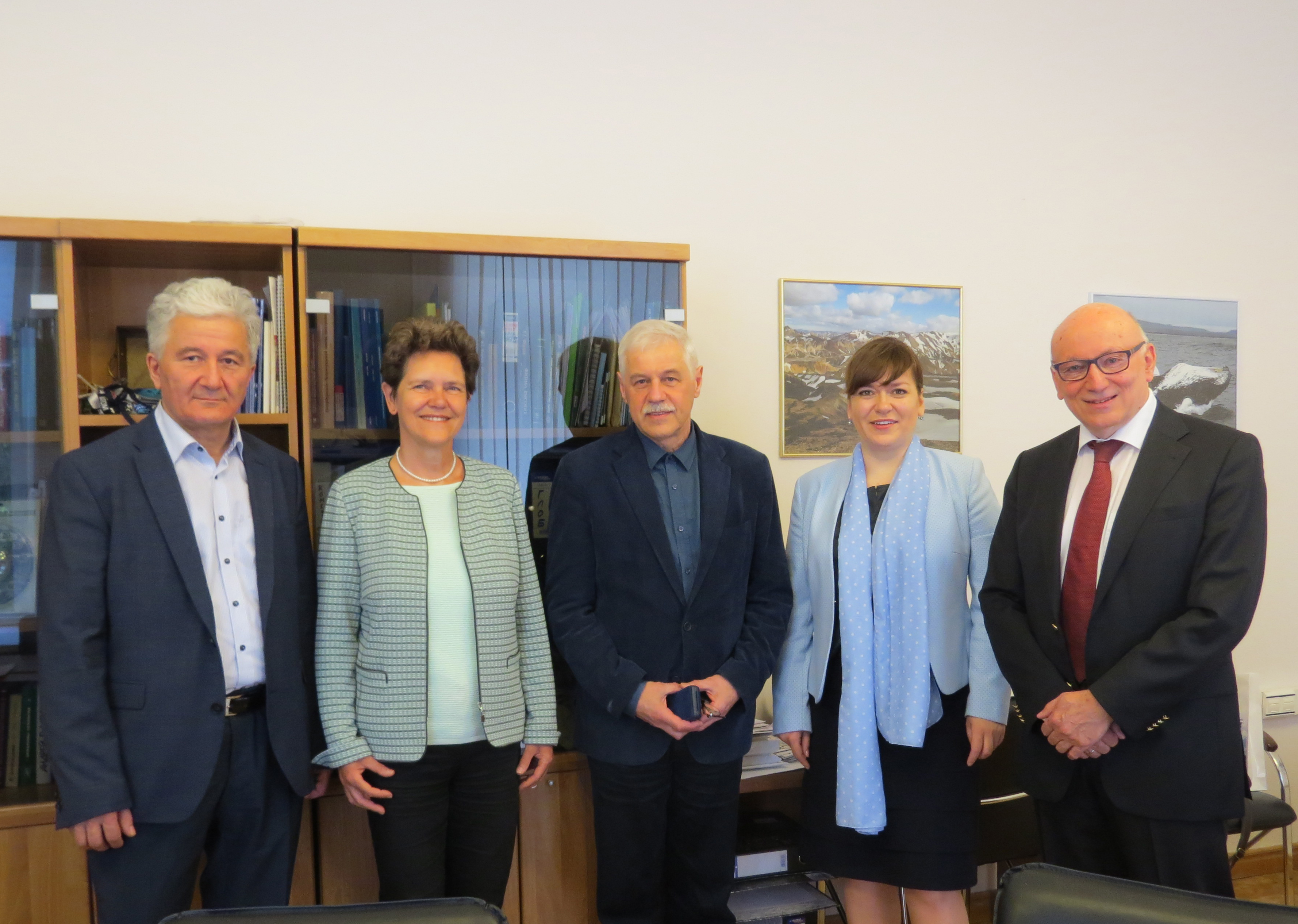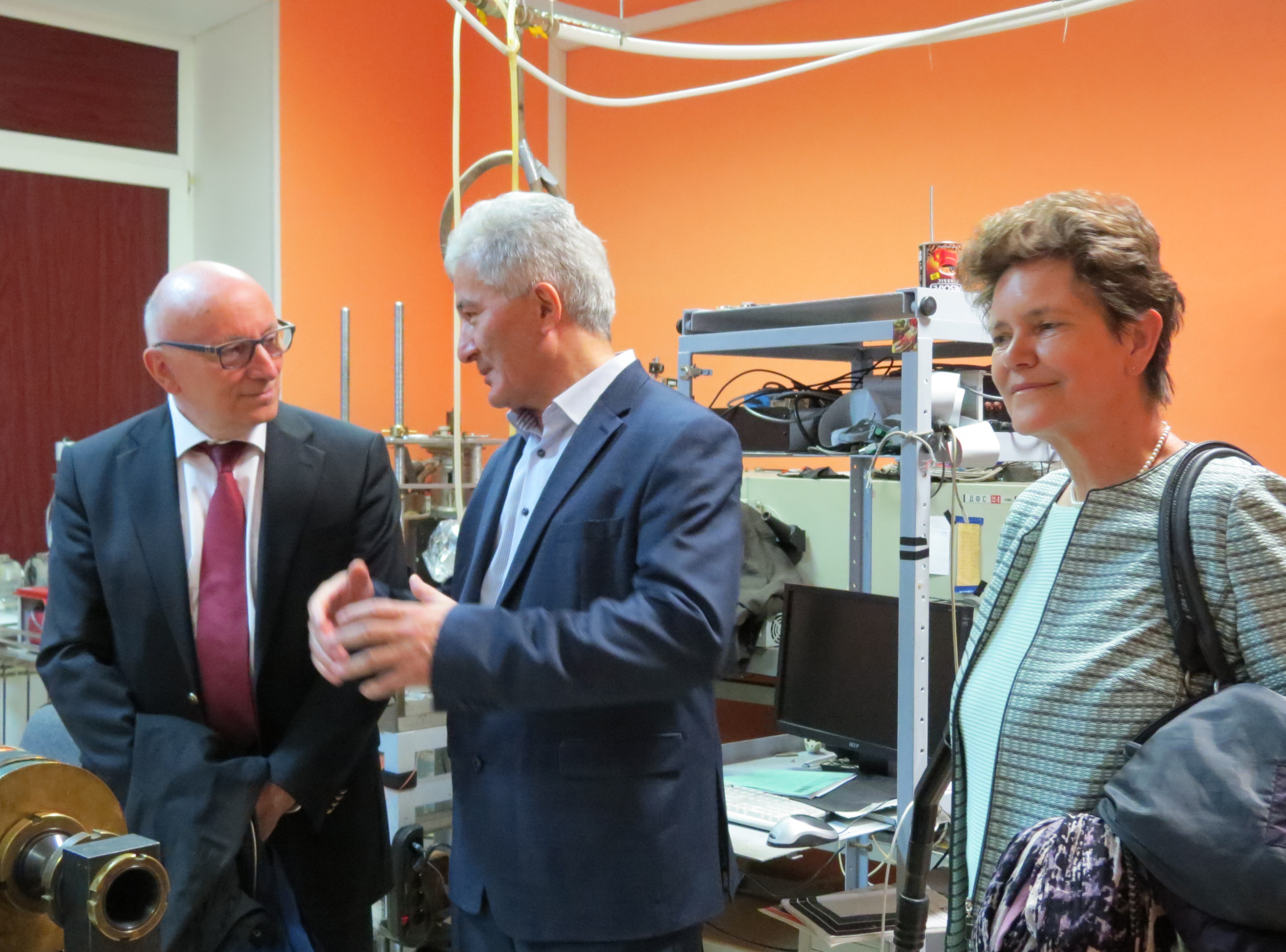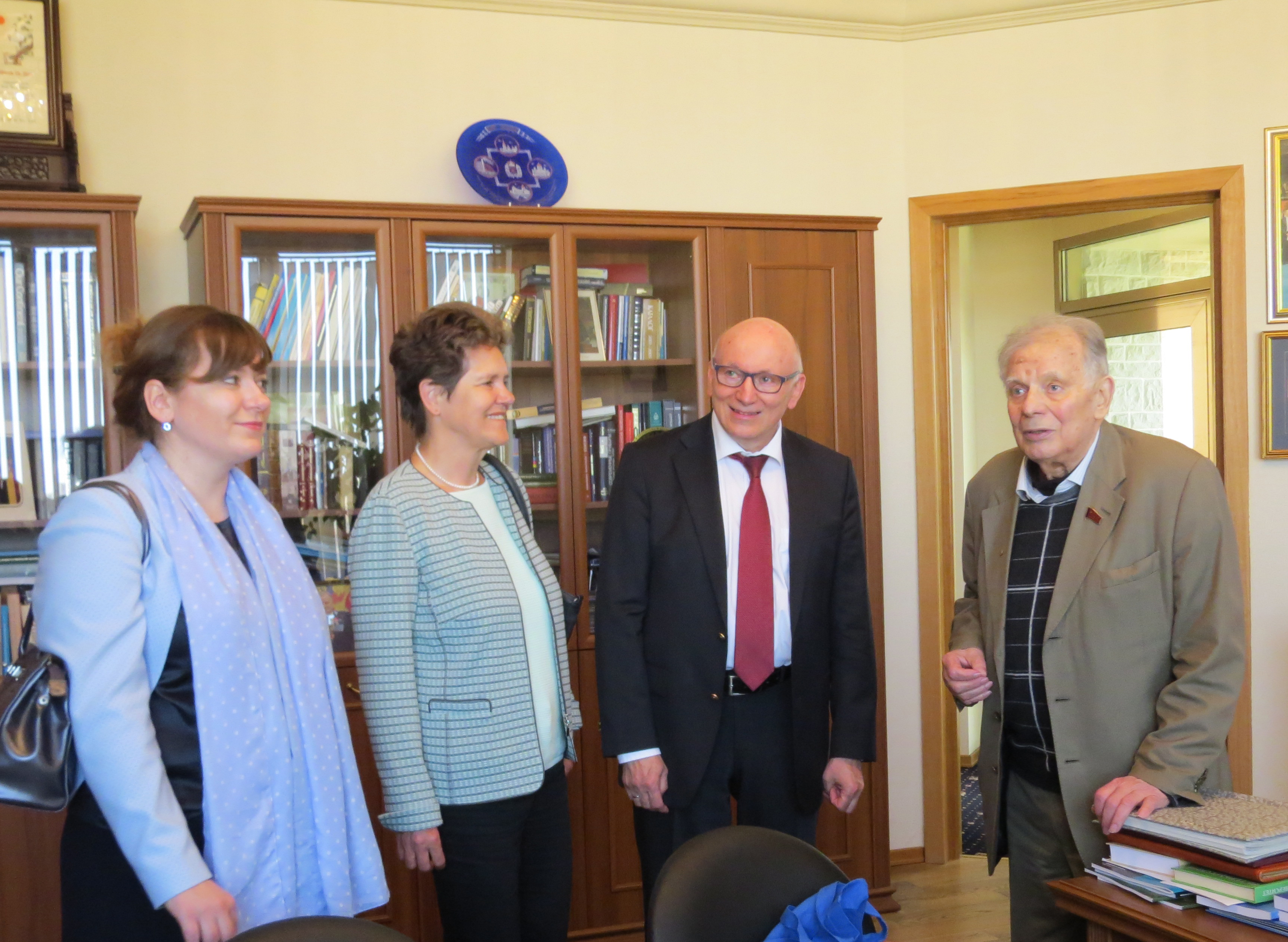DFG Presents Leibniz Lecture on Quantum Metrology at St. Petersburg Polytechnic University
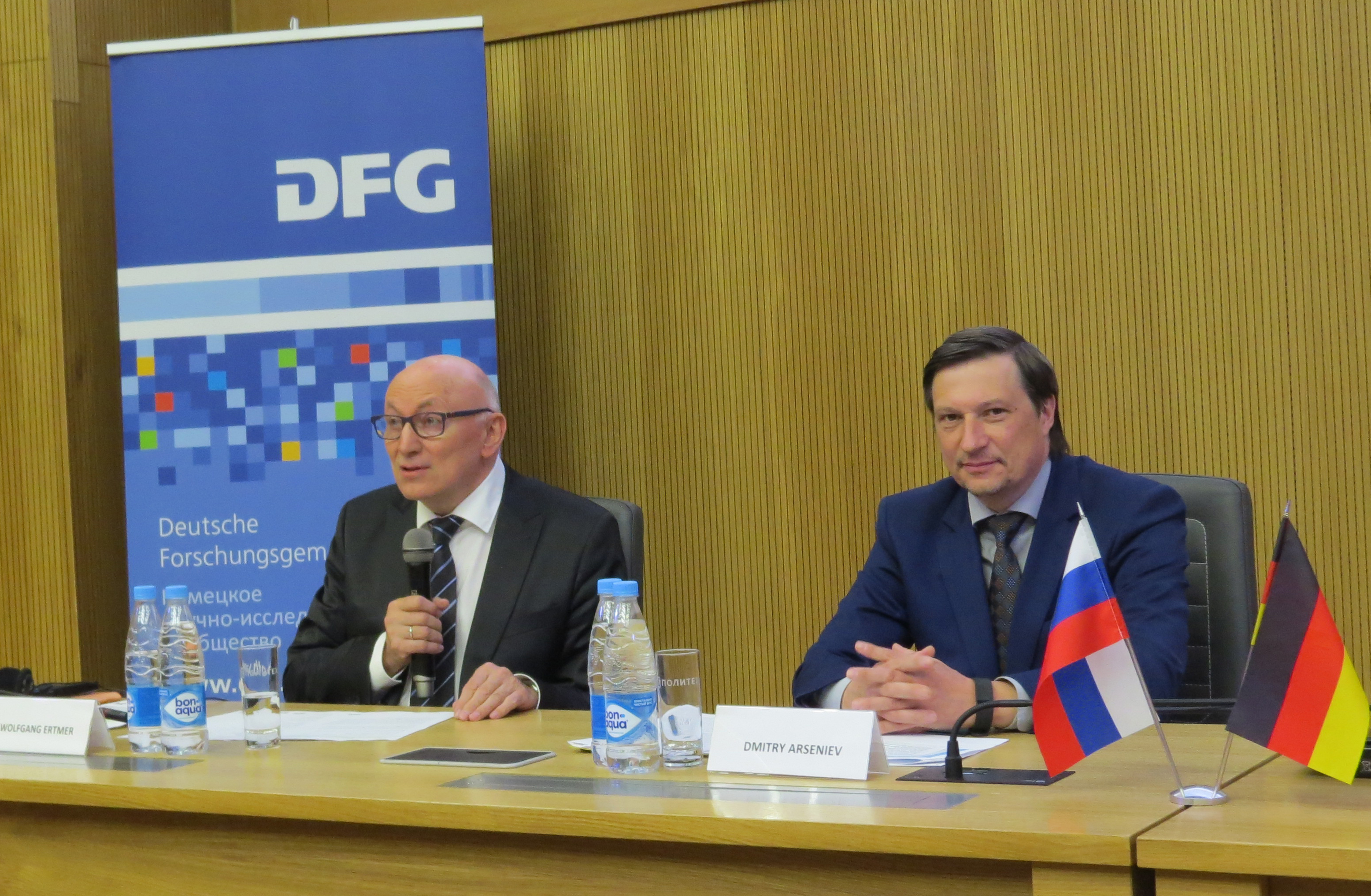
Vice-Rector Dmitry Arseniev (right) introduces the Leibniz Lecture by Professor Ertmer at SPbPU
© DFG
(23.04.18) During the 15th German Week in St. Petersburg in April, the Deutsche Forschungsgemeinschaft (DFG, German Research Foundation), in partnership with St. Petersburg Polytechnic University (SPbPU), organised a lecture by Leibniz Prize recipient, DFG Vice-President and respected experimental physicist, Professor Wolfgang Ertmer. Professor Ertmer’s topic of ‘Quantum Metrology at the Quantum Frontiers’ attracted an interested specialist audience, including a large number of students.
In his Leibniz Lecture – which was introduced by the Vice-Rector for International Affairs, Prof. Dmitry Arseniev, and the German Consulate General in St. Petersburg – Professor Ertmer explained to the audience of around 70 the enormous progress made in quantum physics in recent times thanks to the physics of ‘ultra-cold quantum gases’. The ‘quantum engineering’ that this has made possible, particularly with Bose-Einstein condensates, opens up completely new horizons in precision for quantum metrology. Ertmer illustrated diverse potential applications in extremely accurate atomic clocks, the new field of relativistic geodesy, and sensors based on atomic interferometry, both in the laboratory and more recently in space.
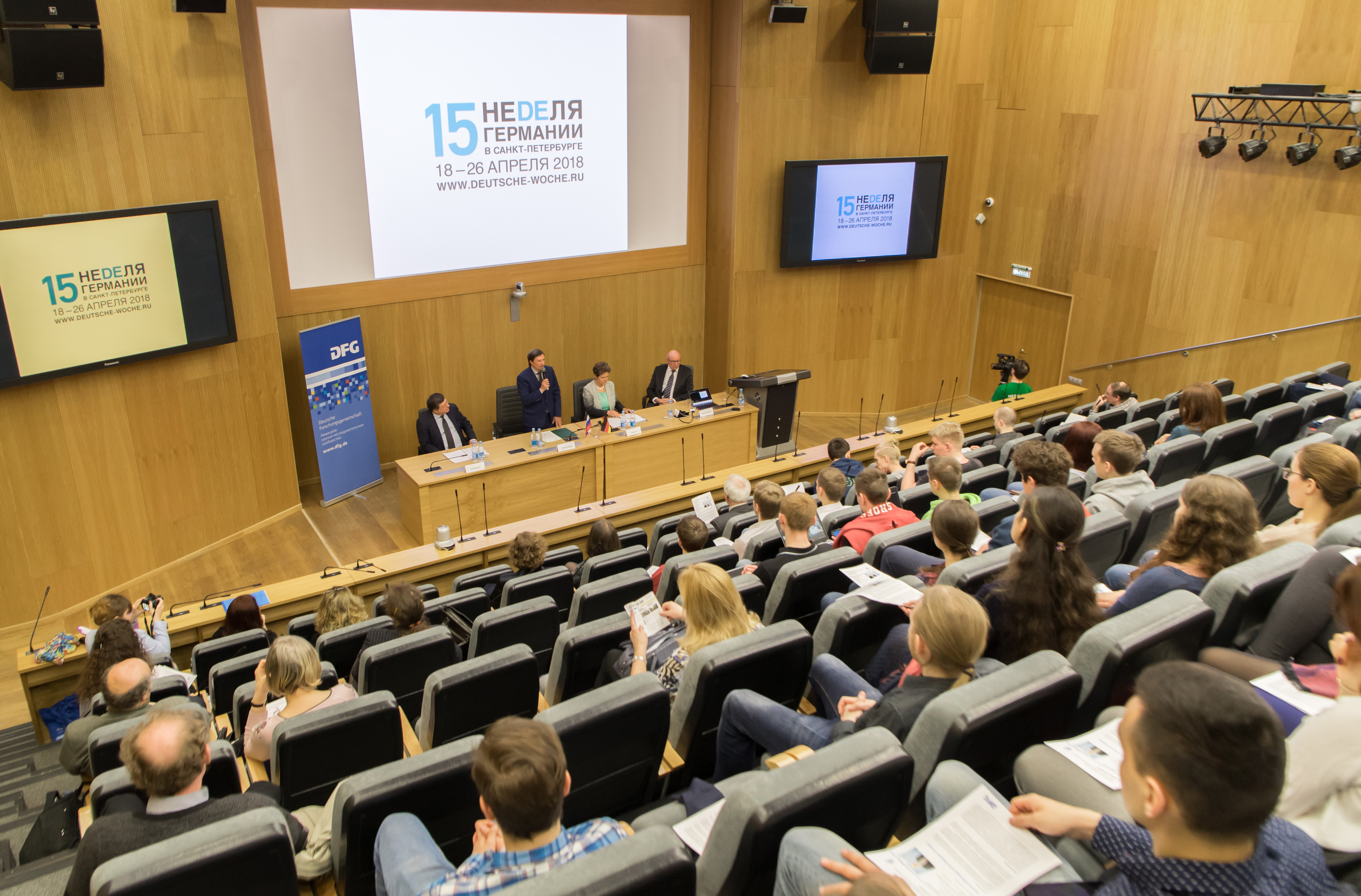
Leibniz Lecture given by Professor Ertmer (University of Hannover) at St. Petersburg Polytechnic University
© DFG
It was the eighth occasion on which this lecture format has been held in the Russian Federation, showing how it has already developed into an institution of both scholarly and policy dialogue. The venue chosen by the DFG for this year’s lecture, the Polytechnic University, is among the largest and most renowned universities in Russia with over 32,000 students and it has had the status of a National Research University since 2010. The lecture was followed by an information seminar attended by around 30 participants, at which Karin Zach, Head of the DFG’s Physics and Mathematics Division in Bonn, and Wilma Rethage, Director of the DFG Office in Moscow, spoke about the DFG’s general principles and way of working, opportunities for German-Russian cooperation, and the challenges posed by the Excellence Strategy for German universities.
DFG delegation at the Ioffe Institute in St. Petersburg: (from left) Yury Kusraev (Ioffe Institute), Karin Zach, Wilma Rethage, Wolfgang Ertmer
© DFG
The trip to St. Petersburg for the Leibniz Lecture also provided an opportunity to nurture contacts and partnerships with the city’s academic community, such as the Higher School of Economics and St. Petersburg State University. The group from Germany visited various labs at the Ioffe Physical-Technical Institute of the Russian Academy of Sciences, where the DFG is funding a German-Russian Collaborative Research Centre in solid-state physics, which provided a glimpse of the top-level physics research being carried out in Russia. The Institute’s Director, Sergey Lebedev, welcomed Professor Ertmer and informed him about current lines of research and future outlooks for German-Russian cooperation. The German delegation also met with Prof. Zhores I. Alferov, the Founder and Rector of the St. Petersburg Academic University of the Russian Academy of Sciences and winner of the 2000 Nobel Prize in Physics, and was given a guided tour of various areas of the university’s nanotechnology lab by the Vice-Rector for Research, Prof. Alexey Zhukov.
Wolfgang Ertmer, Vice-President of the DFG and a member of the DFG Senate since 2007, is a professor of experimental physics at the University of Hannover. In recognition of his work, he received the DFG’s Gottfried Wilhelm Leibniz Prize, Germany’s most prestigious award for research, in 1997. The DFG organises Leibniz Lectures, delivered by recipients of Germany's most important research prize, at worldwide locations where it has its own international representations. The lectures present the latest topics of top-level research in Germany and opportunities for bilateral cooperation. Leibniz Lectures are greatly valued abroad as an ‘ambassador’ of German research and pave the way for new research cooperations.
Further Information:
